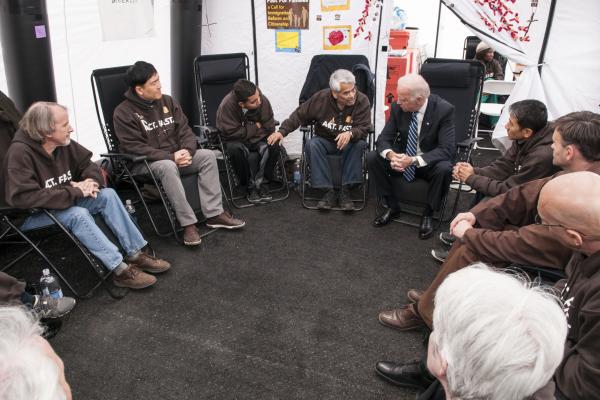Mar 18, 2014
I became a member of Young Koreans United (YKU), a Korean American grassroots group providing solidarity to the people’s movement for democracy, human rights, and reunification of Korea in 1986. YKU was instrumental in forming the National Korean American Service & Education Consortium (NAKASEC); established 20 years ago to build a progressive Korean American voice on major civil rights issues. I joined the NAKASEC board a few years back. Throughout this time, I have tried to provide a clergy presence whenever I can to show that ending the suffering of immigrant families, including that of the 1 out of 7 undocumented Korean Americans, is also a concern of persons of faith.
Read the Full Article

Already a subscriber? Login
